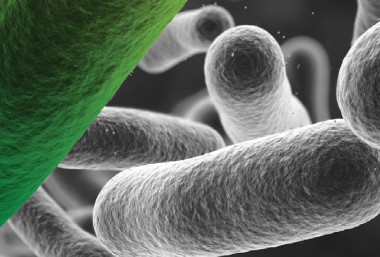You will be aware that the New Zealand Patents Act 2013 and accompanying regulations came into force on 13 September 2014. This new legislation introduces significant changes to New Zealand patent practice, including new deposit requirements for patents claiming micro-organism inventions which are set out in Section 43 and Regulation 59.
The problems
Section 43(1)(b) requires applicants to provide a deposit receipt for the microorganism to the Intellectual Property Office of New Zealand (IPONZ) within a prescribed period. Another requirement is that the specification include details regarding the deposit and depositary institution within a prescribed period (s 43(1)(d)).
When the Patent Regulations 2014 were first made publicly available last month, we noted with some concern that the prescribed period for providing a deposit receipt was '3 months after the date that the microorganism is deposited with the prescribed depositary institution'.
In addition, the regulations do not prescribe a period for s 43(1)(d).
The consequences
As those of you working in the field will appreciate, microorganism deposits are generally made well in advance of any decision about where subsequent patent applications will be filed. Therefore, the deposit requirements are clearly unworkable for the majority of applicants filing microorganism patents.
It also appears from a literal reading of the regulations that many patent applications filed under the 2013 Act could be void for failure to meet the legislative requirements. We are aware that some sources of information have stated that applicants must have filed applications for microorganism-based patents in New Zealand before 13 September 2014 or risk losing all patent rights in New Zealand.
However, this is not correct.
The solution
We alerted IPONZ to the problem as soon as we became aware of it in August. IPONZ confirmed that Regulation 59, as currently worded, does not reflect its intentions and that the regulations need amendment.
Unfortunately, legislative change takes time and is delayed by New Zealand's general election in September 2014. As a short term remedy, IPONZ has been considering a number of practical, work-around solutions to ensure that applicants filing under the 2013 Act are not disadvantaged.
Currently IPONZ considers that a PCT applicant whose deposit was made before entering national phase will meet the deposit requirements of the new Act, if the deposit receipt is provided on national phase entry.
While this is good news, uncertainties remain. For example, what happens if the deposit receipt cannot be filed on national phase entry?
We are working with IPONZ to ensure they provide a clearly set out, practical solution to this problem, so that no applicant is deprived of their rights by a mistake not of their own making. We will keep you informed as we learn more.
Filing applications in New Zealand before 13 September 2014
In the meantime, we see no need for applicants to file patent applications related to microorganism-based inventions by 12 September 2014 merely to avoid the deposit requirements under the 2013 Act.
However, as explained in our earlier communications, there are other advantages to entering national phase in New Zealand before the new Act comes into force. For example, to avoid the more stringent examination and restrictive divisional application filing rules provided by the 2013 Act.
We also remind you of the cost savings available by paying all the renewal fees for your New Zealand patents in advance to avoid the higher fees that the 2013 Act will introduce.
Please see our website for further details about the changes brought in by the new Patents Act.
And please let us know as soon as possible if you wish to file any New Zealand applications or pay renewal fees on any granted New Zealand patents before 13 September 2013.
Bear in mind that New Zealand time is well ahead of many other countries so those in Europe and the US will need to instruct us by the end of Thursday 11th September to meet the deadline.





